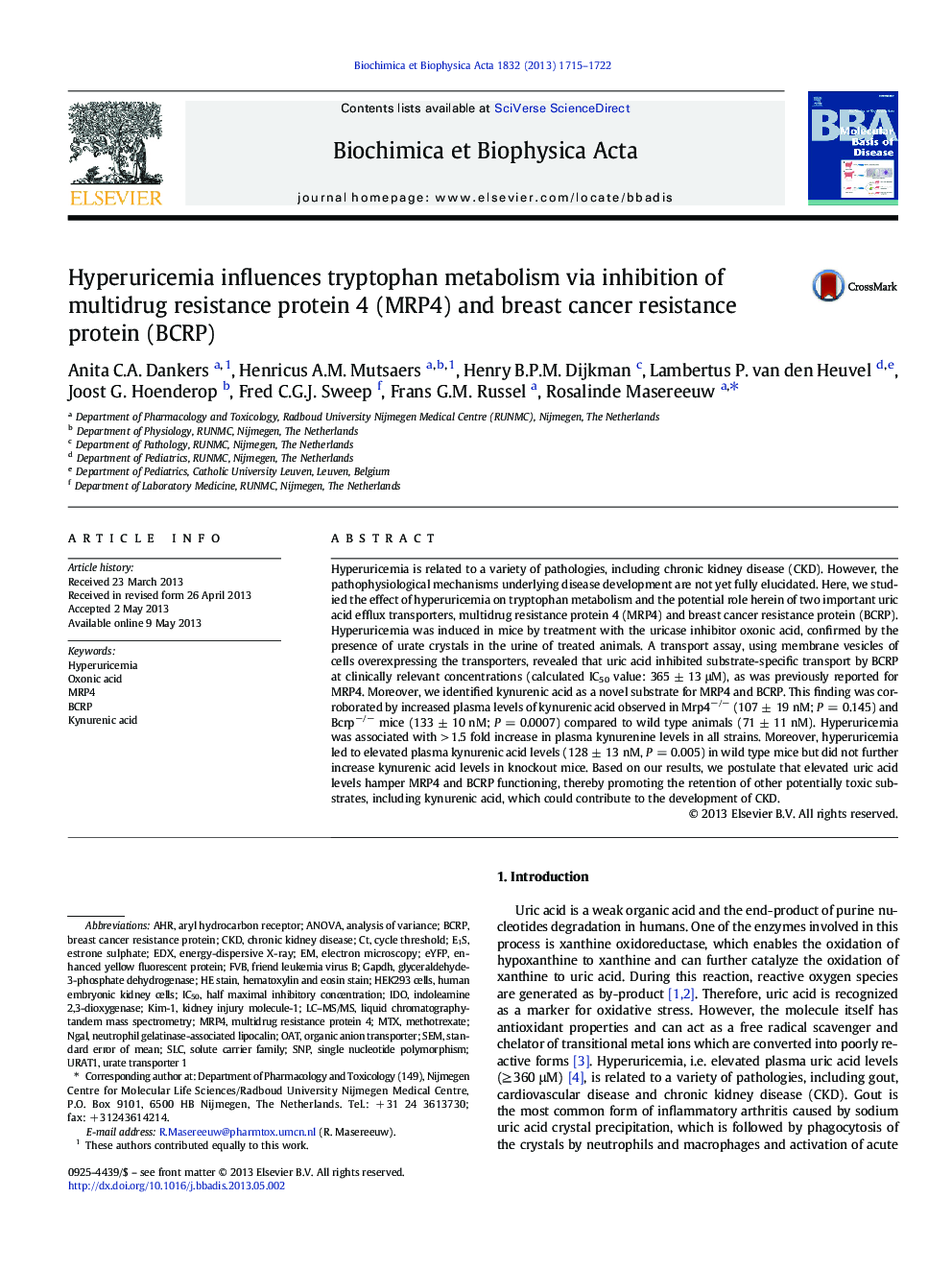| کد مقاله | کد نشریه | سال انتشار | مقاله انگلیسی | نسخه تمام متن |
|---|---|---|---|---|
| 1904800 | 1534667 | 2013 | 8 صفحه PDF | دانلود رایگان |

• Identification of kynurenic acid as a novel MRP4 substrate.
• Uric acid inhibits BCRP activity at clinically relevant levels.
• Hyperuricemia is associated with alterations in tryptophan metabolism.
• Hyperuricemia contributes to disease development by promoting metabolite retention.
Hyperuricemia is related to a variety of pathologies, including chronic kidney disease (CKD). However, the pathophysiological mechanisms underlying disease development are not yet fully elucidated. Here, we studied the effect of hyperuricemia on tryptophan metabolism and the potential role herein of two important uric acid efflux transporters, multidrug resistance protein 4 (MRP4) and breast cancer resistance protein (BCRP). Hyperuricemia was induced in mice by treatment with the uricase inhibitor oxonic acid, confirmed by the presence of urate crystals in the urine of treated animals. A transport assay, using membrane vesicles of cells overexpressing the transporters, revealed that uric acid inhibited substrate-specific transport by BCRP at clinically relevant concentrations (calculated IC50 value: 365 ± 13 μM), as was previously reported for MRP4. Moreover, we identified kynurenic acid as a novel substrate for MRP4 and BCRP. This finding was corroborated by increased plasma levels of kynurenic acid observed in Mrp4−/− (107 ± 19 nM; P = 0.145) and Bcrp−/− mice (133 ± 10 nM; P = 0.0007) compared to wild type animals (71 ± 11 nM). Hyperuricemia was associated with > 1.5 fold increase in plasma kynurenine levels in all strains. Moreover, hyperuricemia led to elevated plasma kynurenic acid levels (128 ± 13 nM, P = 0.005) in wild type mice but did not further increase kynurenic acid levels in knockout mice. Based on our results, we postulate that elevated uric acid levels hamper MRP4 and BCRP functioning, thereby promoting the retention of other potentially toxic substrates, including kynurenic acid, which could contribute to the development of CKD.
Journal: Biochimica et Biophysica Acta (BBA) - Molecular Basis of Disease - Volume 1832, Issue 10, October 2013, Pages 1715–1722